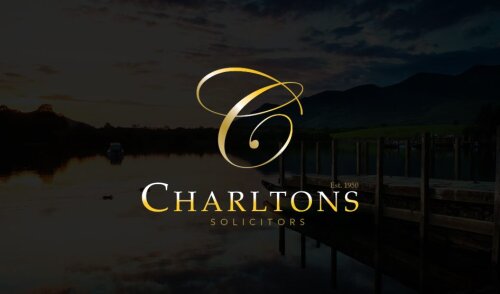Best Trusts Lawyers in Stoke-on-Trent
Share your needs with us, get contacted by law firms.
Free. Takes 2 min.
List of the best lawyers in Stoke-on-Trent, United Kingdom
About Trusts Law in Stoke-on-Trent, United Kingdom
Trusts are a fundamental aspect of estate planning and wealth management in the United Kingdom, including Stoke-on-Trent. A trust is a legal relationship where one person (the settlor) transfers assets to another person or persons (the trustees), who manage those assets for the benefit of a third party (the beneficiaries). Trusts can be used for a range of purposes, such as protecting family wealth, ensuring a smooth succession of assets, or providing for loved ones who are unable to manage finances themselves. Many residents of Stoke-on-Trent turn to trusts to help manage their inheritance planning, protect vulnerable beneficiaries, or make charitable donations.
Why You May Need a Lawyer
There are several scenarios where seeking legal advice on trusts can be essential. Common situations include:
- Creating a trust as part of your will or estate plan
- Administering an existing family or discretionary trust
- Disputes between trustees or between trustees and beneficiaries
- Concerns about the conduct or accountability of trustees
- Minimising inheritance tax or capital gains tax through trust structures
- Protecting assets from care fees or from creditors
- Providing for minors, elderly relatives, or individuals with disabilities
- Wishing to set up a charitable trust or trust for a specific purpose
- Understanding the impact of divorce or relationship breakdown on trusts
- Managing foreign assets or dealing with trusts with an international element
A lawyer with expertise in trusts can ensure all legal documentation complies with UK law, explain your options, and offer guidance tailored to your specific circumstances.
Local Laws Overview
Trust law across England and Wales, including Stoke-on-Trent, is governed by a combination of statutory law and common law principles. The key statutes affecting trusts are the Trustee Act 1925, Trustee Act 2000, the Trusts of Land and Appointment of Trustees Act 1996, and the Inheritance Tax Act 1984. Stoke-on-Trent follows national laws, but it's important to consider local factors, such as property values and the local Probate Registry.
Some key aspects relevant in Stoke-on-Trent:
- Trustees have strict duties, including acting impartially and in the best interests of beneficiaries
- Trusts must be properly documented and registered if they are taxable under HMRC rules
- All trusts with UK tax obligations must be registered on the Trust Registration Service
- Inheritance tax planning is a significant consideration for trusts involving substantial local property assets
- Disputes or court applications involving trusts are usually dealt with in local county courts or the Birmingham District Probate Registry, covering Stoke-on-Trent
Having local legal guidance ensures compliance and addresses any specific issues arising from the asset locations or the makeup of the beneficiaries.
Frequently Asked Questions
What is a trust?
A trust is a legal arrangement where one or more individuals (trustees) look after assets for the benefit of other people (beneficiaries), following the instructions of the person who set up the trust (the settlor).
Who can be a trustee?
Anyone aged 18 or over with mental capacity can be a trustee. Often, family members, friends, professional advisors, or solicitors take this role. It is common to have at least two trustees.
Do I need to register a trust in Stoke-on-Trent?
If your trust incurs tax liabilities, it must be registered with the HMRC Trust Registration Service. Even trusts without tax obligations may need registration under newer anti-money laundering regulations.
Can a trust help save inheritance tax?
Trusts can help with inheritance tax planning, but strict rules apply. The effectiveness depends on the type of trust and the assets placed into it. Always seek professional legal advice to understand the implications.
What types of trusts are commonly used?
Common trusts in Stoke-on-Trent and the wider UK include bare trusts, discretionary trusts, interest in possession trusts, and charitable trusts. Each has different benefits and tax implications.
Do trusts protect assets from care fees?
While some people set up trusts hoping to protect assets from care fees, local authorities may challenge such arrangements. These rules are complex and specialist advice is essential.
What if there is a dispute involving a trust?
Disputes may arise between trustees, or between trustees and beneficiaries. The local county court or Probate Registry can adjudicate, but mediation or negotiation is often recommended before litigation.
How do I change a trustee or beneficiary?
Changing trustees or beneficiaries depends on the terms of the trust. The trust deed may allow changes, but if not, a court order might be required. Legal advice ensures compliance.
Do trusts have to pay tax?
Trusts can be liable for income tax, capital gains tax, or inheritance tax. The tax treatment depends on the type of trust and the assets involved. Trustees are responsible for tax reporting and payments.
Can I set up a trust myself?
While it is possible to prepare trust documents without a lawyer, professional legal advice is highly recommended to ensure the trust meets legal requirements and is suitable for your needs.
Additional Resources
If you need further information or support related to trusts in Stoke-on-Trent, the following resources can be helpful:
- Citizens Advice Stoke-on-Trent for general legal guidance
- HM Revenue and Customs (HMRC) for trust registration and tax matters
- The Law Society for locating specialist trust solicitors in your area
- The Office of the Public Guardian for matters involving incapacitated individuals
- Local Probate Registry services for trust and estate court matters
Next Steps
If you think you may need legal advice about trusts, start by identifying your objectives and gathering information about your circumstances. Prepare a list of the assets you wish to include in the trust, who you wish to benefit, and any special considerations (such as tax planning or vulnerable beneficiaries).
Next, contact a solicitor in Stoke-on-Trent with expertise in trust law. Look for accredited members of relevant bodies such as the Society of Trust and Estate Practitioners (STEP) or the Law Society's Private Client Section.
Arrange an initial consultation to explore your options and clarify the costs involved. Be prepared to discuss your goals and any questions you have.
With professional guidance, you can set up or manage a trust that best protects your interests and those of your chosen beneficiaries.
Lawzana helps you find the best lawyers and law firms in Stoke-on-Trent through a curated and pre-screened list of qualified legal professionals. Our platform offers rankings and detailed profiles of attorneys and law firms, allowing you to compare based on practice areas, including Trusts, experience, and client feedback.
Each profile includes a description of the firm's areas of practice, client reviews, team members and partners, year of establishment, spoken languages, office locations, contact information, social media presence, and any published articles or resources. Most firms on our platform speak English and are experienced in both local and international legal matters.
Get a quote from top-rated law firms in Stoke-on-Trent, United Kingdom — quickly, securely, and without unnecessary hassle.
Disclaimer:
The information provided on this page is for general informational purposes only and does not constitute legal advice. While we strive to ensure the accuracy and relevance of the content, legal information may change over time, and interpretations of the law can vary. You should always consult with a qualified legal professional for advice specific to your situation.
We disclaim all liability for actions taken or not taken based on the content of this page. If you believe any information is incorrect or outdated, please contact us, and we will review and update it where appropriate.












